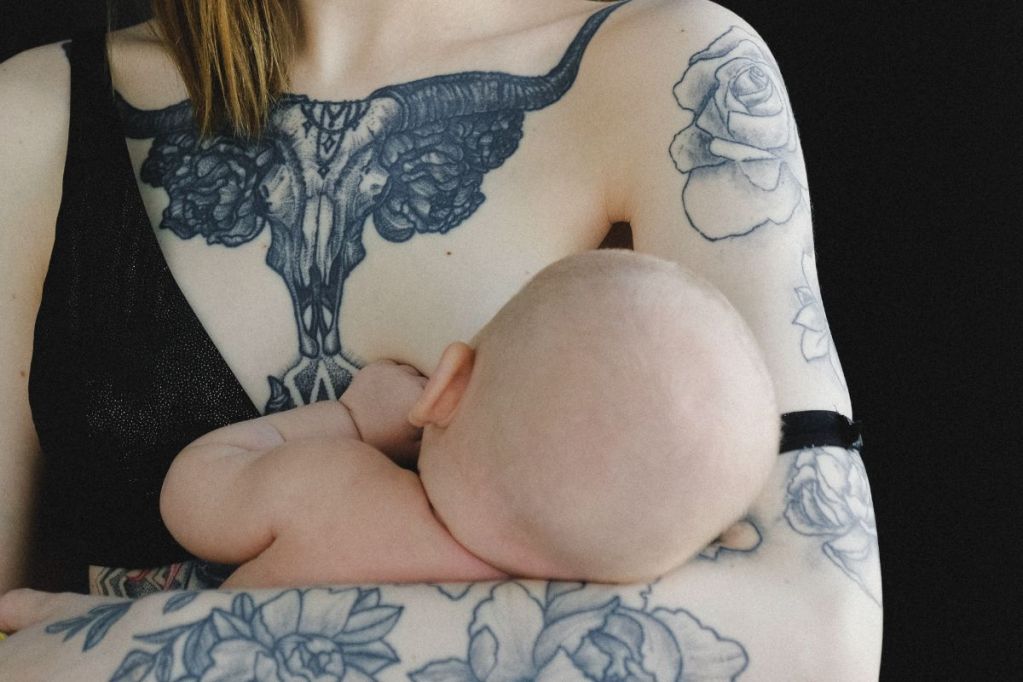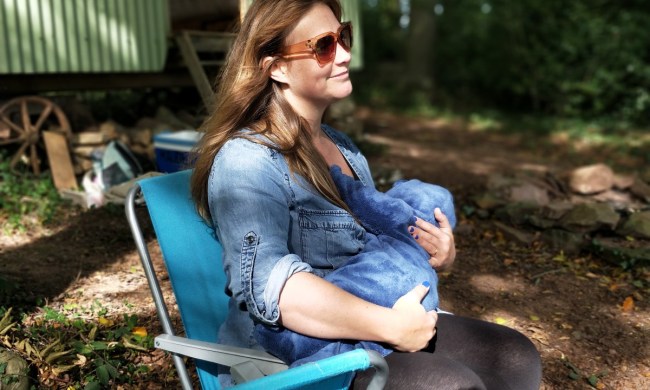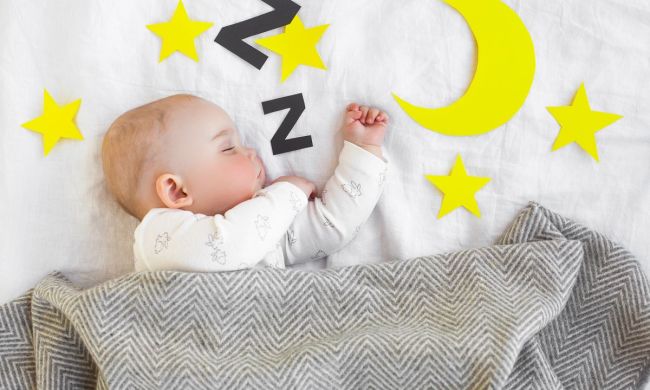
Many women are eager to enjoy certain things they give up during pregnancy after they welcome their baby. However, when a woman chooses to breastfeed, there are many considerations she must continue to make, like whether she can drink alcohol or caffeine. And if you’re a big fan of getting new ink, one question you might have is, “Can you get a tattoo while breastfeeding?”
The answer isn’t entirely clear, but we’ve gathered expert information to help you make an educated decision. Expressing your individual style doesn’t stop with parenthood so get that tat, but let’s figure out if the timing should wait until after weaning.
Can you get a tattoo while breastfeeding? It’s best not to because of some possible risks

There is no evidence that tattoo ink can enter breastmilk, and there have been no studies about the safety of getting tattoos while breastfeeding. Despite this, it is still generally advised against, out of caution. Tattoo ink contains heavy metals, including lead and arsenic, that enter under your skin in the tattooing process, and if there is a chance that can be absorbed into your system to enter breastmilk, it could have serious effects. There are also other factors to consider, such as infection risk. Because of all this, it’s best to wait until after weaning.
As of 2019, The Journal of Midwifery & Women’s Health says, “You should not get a tattoo if you are pregnant, breastfeeding, or have an allergy to nickel or chromium.”
Pre-existing tattoos are safe for breastfeeding.
What are the risks of tattooing while breastfeeding?

First, there are risks of infection, disease transmission, or allergic reactions when you get a tattoo. If any of these concerns occurred, it could affect your baby via breastfeeding. Getting a tattoo with dirty instruments could give you a blood infection like HIV, hepatitis C, or tetanus, some of which can be passed through breast milk. Needing to take an antibiotic for a skin infection can create thrush on your breast and in your baby’s mouth, which can cause pain while breastfeeding.
There is also the healing tattoo to consider. Depending on the location, a fresh tattoo could make different positions difficult to place your baby. If the tattoo is on your arm, chest, thigh, or hand, avoiding having your baby or breastmilk rub the healing tattoo often could be difficult and complicate the healing process, risking infection.
La Leche League says: “It is generally assumed that ink molecules are too large to pass into breastmilk during the tattoo process. Once injected into the skin, the ink is trapped; however, it is unknown whether the ink can pass into breastmilk as it slowly breaks down in the body months to years later.”
The organization also adds: “Most tattooists will not knowingly tattoo a pregnant or breastfeeding mother. This is for liability reasons on the tattoo artist’s part, but also to prevent any disease that might affect the growing baby, and to allow the mother’s body time to heal. It is suggested that mothers wait at least until 9 to 12 months after birth, when the child is no longer dependent solely on breastmilk, before getting a tattoo. Reputable tattoo artists will have a waiver for the client to sign that asks about pregnancy and breastfeeding.”
How long should you wait after childbirth to get a tattoo?

Again, there are no hard and fast rules as to how long you should wait to get a tattoo after childbirth, especially if you are not breastfeeding, but some experts suggest waiting at least a year for those who are not breastfeeding before getting new ink, with an additional six months to a year added on after stopping breastfeeding for those who do.
Skin changes like stretch marks and melasma can all occur during pregnancy and could affect how a new tattoo might look. Allowing your body to adjust to its postpartum state and your hormones to settle after childbirth are all important factors in ensuring you get the best result for your tattoo.
Can you get a tattoo removed while breastfeeding?

There have also been no studies about tattoo removal while breastfeeding. Tattoo removal works by using a laser to break down the ink into smaller particles that your body absorbs and filters out through your immune system and liver. According to La Leche League, “it is unknown whether the ink particles are small enough to enter breastmilk” so they suggest you wait until you’re done breastfeeding to have any tattoos removed. Just like with getting a tattoo, we just don’t know if removing a tattoo is safe, so err on the side of caution by delaying until after weaning.
While it’s a personal choice and there is no hard evidence that it is dangerous, it’s generally advised to wait. Since getting or removing a tattoo isn’t urgent and breastfeeding is temporary, why not wait just in case an infection pops up or it is possible that the hard metals in the ink passed through breastmilk? It could also be uncomfortable to breastfeed, lift, and care for a baby while a tattoo is healing. If it does feel urgent to get or remove a tattoo for a particular reason, consult with your doctor and your baby’s pediatrician and research clean and reputable tattoo salons and artists first.



